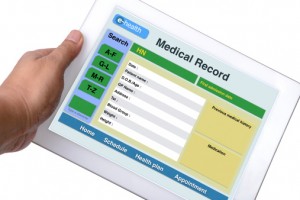Electronic Medical Records: The Good and the Bad
 Over the past 20 years the health care industry has seen dramatic change. In that time period new procedures, treatments, and medical equipment were developed and these developments have changed the way that patients are cared for. In addition to these treatment focused changes, the way that health information is stored and distributed has also seen dramatic change. In years past, patients’ medical records and data were all kept in paper format. Electronic Medical Records (EMR) were first introduced in the 1990’s, but it was later in the 2000’s that EMR began to see widespread adoption and use. EMR has changed the healthcare industry in many different ways and these changes have produced both positive and negative effects.
Over the past 20 years the health care industry has seen dramatic change. In that time period new procedures, treatments, and medical equipment were developed and these developments have changed the way that patients are cared for. In addition to these treatment focused changes, the way that health information is stored and distributed has also seen dramatic change. In years past, patients’ medical records and data were all kept in paper format. Electronic Medical Records (EMR) were first introduced in the 1990’s, but it was later in the 2000’s that EMR began to see widespread adoption and use. EMR has changed the healthcare industry in many different ways and these changes have produced both positive and negative effects.
Benefits of EMR
Electronic medical records were designed to help keep the healthcare industry up to date in the digital age. Paper records, which were previously used, made it very difficult for information to be shared among multiple doctors and facilities. Realizing the potential that electronic records presented, the healthcare industry made a push to switch to EMR across the country. Recent surveys prove the widespread adoption of EMR as 78 percent of physicians’ offices now utilize some form of EMR. EMR systems have provided multiple benefits for their users.
- Improved coordination and accessibility of records. EMR can be easily accessed from any computer and this allows for much greater coordination among physicians. Instead of having to order copies of a patient’s chart from another facility which could take weeks to receive, doctors can now simply log into an EMR system and instantly view their patients’ records. This instant access prevents doctors from performing duplicate tests by allowing them to see what the patient has already been tested for.
- Improved quality of patient care. Before the widespread use of EMR, if a patient was being seen by a new doctor or visiting a new facility, the healthcare provider did not have access to the patient’s records. This made it impossible for physicians to accurately assess and treat patients. Now, physicians at any location have access to complete patient medical records enabling them to provide the best and most accurate care possible.
- Increased practice efficiency and reduction of costs. EMR make the record keeping process much simpler for healthcare providers by eliminating the need for mountains of paperwork like before. By automating the process, prescriptions are much easier to order, lab results and other important data are transferred much quicker, and the need to manually pull, store, and re-file charts has been eliminated. All of these benefits help to decrease the amount of labor time and costs that are related to medical records.
Negatives of EMR
To this point, most healthcare providers have found EMR systems to be very beneficial for their practices. However, there have been some drawbacks with the use of EMR.
- Lack of standardization amongst EMR systems. Currently, in the healthcare industry, there are several different EMR providers and platforms being used. While this is good for competition, the use of multiple platforms has become an issue for healthcare providers as each system presents patient records in a different way. There is no set way that an EMR must be structured and therefore, when a physician looks at a patient’s EMR they never know what they are getting. For example, with one EMR system a patients vitals may appear in the front and with another they may appear in the back. This has made it difficult for physicians to analyze charts and find the information that they are looking for, thus decreasing the efficiency of their services.
- More time is being spent looking at computers, rather than patients. Some physicians do not like the fact that all data entered into an EMR must be done so with a computer. They complain that because they must physically go to the computer and enter their notes and data they are spending less face to face time with patients. Some facilities are addressing this problem by redesigning their patient rooms to have computers closer to the patients.
Is EMR Right for Me?
The implementation of EMR systems across the country has undoubtedly changed the way that patients are cared for and the way that their important data is maintained. While there are some negatives with EMR, most agree that the benefits far outweigh the negatives and EMR are far superior to old, paper based records. Make sure that your health records are up to date and easy to access when you need them by ordering your medical records today.













